New MBA Jobs: Apple, Fidelity, BlackRock, and More
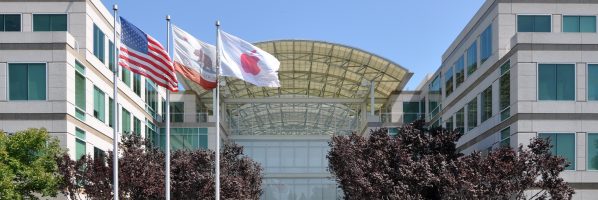
Whether you earned your MBA after your undergraduate studies and want a great entry level position, or you’re a seasoned vet who earned their MBA to make a big career jump, there’s plenty of jobs out there for MBAs. Stay on top of the latest and greatest job opportunities for MBAs with this handy guide, useful for both those looking for their first big job or those looking for the next big thing: Continue reading…
Which Business School Students Have the Top GMAT Scores?

A strong GMAT score is essential to a stellar business school application. Though the score is universally important to admission, certain schools emphasize a high score on the test more than others. Below, we’ve laid out a list of the 10 business schools with the top GMAT scores for incoming students.
10 Highest GPA Averages in the Business School World

The role of a GPA in MBA admissions is a hotly debated topic among both admissions officers and applicants. How much does it really matter? Does a low GPA destroy your chances of getting into a top business school?
One of the most important things to keep in mind when considering how your undergraduate GPA will impact the MBA admissions process is the fact that not all GPAs are alike. Far from a standardized figure, GPA and the way it’s measured can vary from school to school- even major to major. For this reason, it can be difficult to use the GPA’s of different applicants as any accurate predictor of success.
An student’s GPA will always be an important part of the admissions process, because it helps tell admissions officers about past academic success. Still, admissions officers are well aware of the high level of variability between GPA scores. Taking this into account, most officers working in MBA admissions will always look for more to an individual’s story than just the GPA. Numbers like a GMAT/GRE can often paint a much more exact picture of future academic success than the highly variable GPA. Designed for standardization and to test individuals on the specific challenges of an MBA, a GMAT score allows admissions officials specific insight into each application.
When considering GPA, a general rule of thumb is to not ride or die by this number—whether for better or for worse. A low undergraduate GPA doesn’t necessarily spell disaster for one’s MBA ambitions, and even a perfect 4.0 can’t save an application if the other factors don’t add up.
Overall, the exact number of an undergraduate GPA may be less important than the story behind it. If your low GPA was a result of illness or another external factor while in school, personal statements on the application are a great opportunity to give context behind the numbers and help tell your story to admissions officials.
YOU MAY ALSO LIKE: The Highest Paying MBA Internships You Can Find
Nevertheless, getting a sense of the average undergraduate GPA for your prospective programs can help give provide crucial insights. Class profiles and statistics for business schools throughout the country can give prospective students a good sense of the typical student looks like in each program, and help applicants decide if they’ll be a good fit.
Below, we take a look at the top 10 MBA programs with the highest average undergrad GPA. Take a closer look at these top schools to get an idea of the average student in each program- and your potential future classmates.
10 Highest GPA Averages for MBAs
1. Stanford University Graduate School of Business
The highest GPA average for MBA students in the U.S. belongs to the class at the Stanford University Graduate School of Business. For the Class of 2019, the average undergrad GPA was 3.74. This is down slightly from the school’s 2015 average of 3.75.
2. Harvard Business School
Often jockeying for position with Stanford, HBS took the number two spot this year with an average undergrad GPA score of 3.71. Three years ago, HBS still loomed large with a 3.66 average, and it just keeps getting higher.
3. Haas School of Business – UC Berkeley
Staying on the heels of Harvard, the Haas School of Business at UC Berkeley takes a top spot today with an undergraduate GPA of 3.7. This is a slight increase from the school’s 2015 average of 3.66.
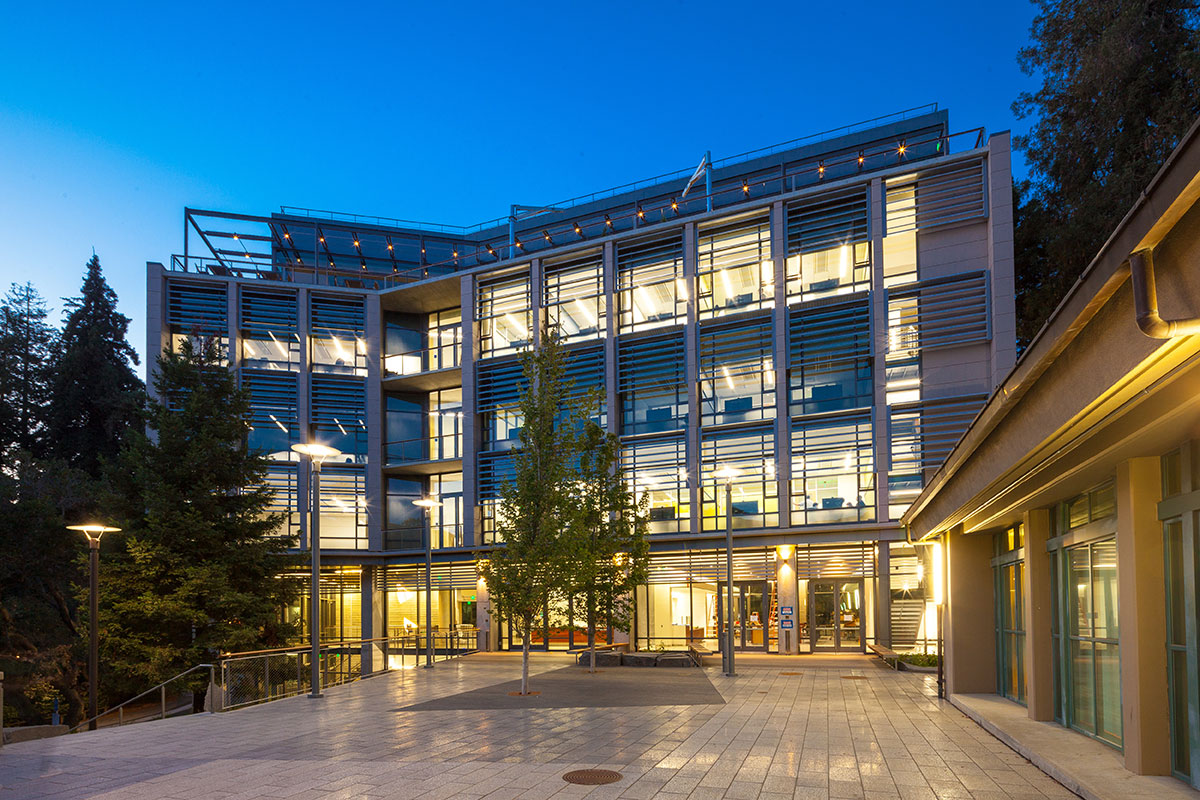
The Haas School of Business GPA average for MBA applicants rose from 3.66 to 3.7 since 2015.
4. Yale School of Management
Significantly up from its GPA average of 3.6 in 2015, the Yale School of Management today has one of the highest undergraduate GPAs in the country at an average of 3.69.
5. Booth School of Business – University of Chicago
The MBA at University of Chicago’s Booth School of Business has consistently maintained one of the top GPA averages for programs in the U.S., up from 3.59 in 2015 to 3.6 this year.
6. The Wharton School – University of Pennsylvania
The Wharton School, consistently recognized for having some of the country’s top business programs, is nothing if not consistent. With a 3.6 average for incoming students between 2012 and 2015, Wharton maintains a perfect 3.6 average GPA this year as well.
7. Kellogg School of Management – Northwestern University
Northwestern’s Kellogg School of Management is another school where consistency is key. From 2014 to today the school has remained at an undergraduate GPA average of 3.6
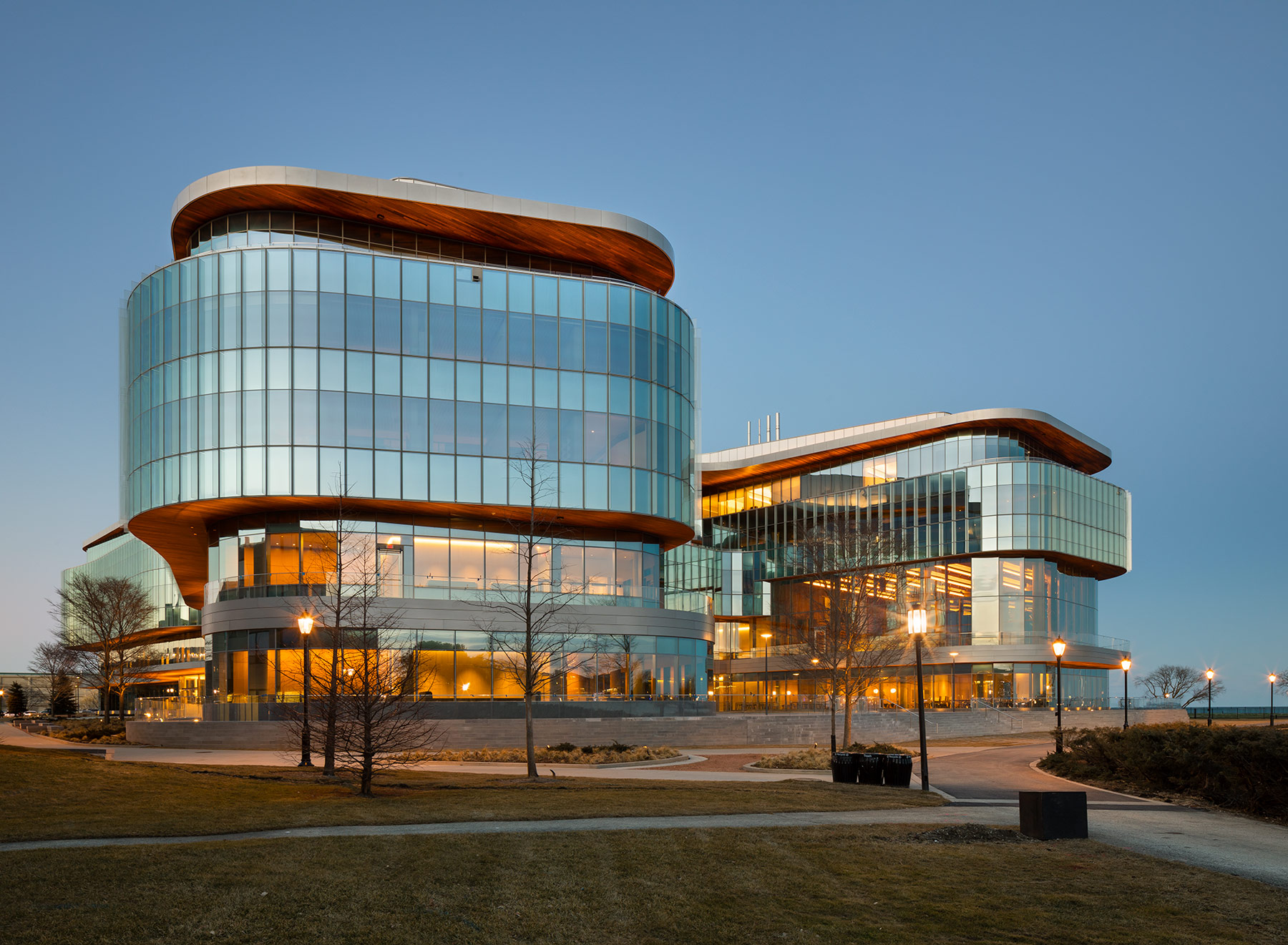
The average Kellogg undergraduate GPA for MBA students has stayed at 3.6 since 2014.
8. Tuck School of Business – Dartmouth College
The average GPA for incoming students at Dartmouth’s Tuck School of Business has gone up and down throughout the years, but has consistently stayed among the highest in the country- down slightly from 3.52 in 2015 to 3.51 this year.
9. Columbia University – Columbia Business School
The Columbia Business School has always received distinctions as one of the top MBA programs in the country, and their average GPA for incoming students at 3.5—which has stayed the same for more than five years—is no exception.
10. MIT – Sloan School of Management
Typically placing much higher on the list, the average Sloan School of Management at MIT has decreased in recent years, from 3.54 in 2015 to 3.49 for this year’s incoming class. The number nonetheless still remains among the highest average GPAs for MBA programs throughout the country.
Improv, Luxuries, and Napoleon: Check out These 10 Unique MBA Courses

Business can often be unfairly characterized as a dry field. But not every business school course fits the stereotype. Check out these 10 unique and interesting MBA electives.
Napoleon’s Glance
Columbia Business School offers this fascinating course in strategic intuition. The curriculum uses the teachings of early strategy literature as its foundation, though the bulk of readings and lectures are based on the content of two contemporary books on the subject: Napoleon’s Glance and The Art of What Works. William Duggan, the author of both books, leads the course. Duggan is a strategy expert and won the Dean’s Award for Teaching Excellence in 2014.
Food and Agribusiness
This Harvard Business School course allows MBA’s to delve into the study of the global food industry. This course is helpful for B-schoolers specifically seeking a career in agriculture, or simply those pursuing consulting or investment banking, since the food industry is so expansive. The course explores the nuances of agribusiness, including how the once strictly local industry has become increasingly globalized.
Luxury Marketing
Another eyebrow-raising Harvard Business School course, Luxury Marketing helps students understand the nuances of luxury brand management. Specifically, the class will be structured in terms of three larger topics: The art of creating luxury brand equity, understanding the luxury sector, and the future of luxury. The course has seen lecturers like world-famous fashion blogger Chiara Ferragni.

HBS doesn’t just offer traditional MBA courses. Students interested in the finer things can also study Luxury Marketing.
Improvisational Leadership: In the Moment Leadership Skills
Improv as a means of facilitating team building and creative thinking is a growing trend in business. That’s why MIT’s Sloan School of Management offers an entire course on improv in business. The first two weeks essentially function like an Improv 101 course, with students learning the fundamental principles of improvisational performance. The subsequent four weeks focus on application, allowing students to practice applying improv principles to real-world business decisions.
Sure, it’s not Second City, so don’t expect students to make a Comedy Bang! Bang! appearance any time soon, but the course can help one develop skills not actively taught at most other business schools.
Leveraging Neuroscience for Business Impact
At University of Pennsylvania’s Wharton School, the faculty understands the value of understanding the human brain in honing business acumen. This course demonstrates just that, as it educates MBA’s in the most recent neuroscience breakthroughs and how this information can be used to predict consumer behavior, manage employees, build teams, and enhance workplace productivity, as well as honing leadership skills.
Next Gen Fashion Retail
Though clothing fads aren’t the first thing people usually associate with MBA education, fashion is its own industry, and a cutthroat one at that. As part of its Luxury and Fashion MBA, New York University’s Stern School of Business offers a course on the future of fashion retail. In this course, students learn about the ever changing fashion landscape and the challenges that lie ahead as the internet cuts out the middleman between brand and customer.
Creativity
Though analytical thinking is important for many aspects of business, creativity is the driving force behind most innovation and problem-solving. NYU Stern’s Creativity class nurtures students’ potential for true out-of-the-box thinking in both work and life. MBA’s learn about the science of creativity and experiment with different creative approaches to problems.
Nobel Thinking
In the Nobel Thinking course at London Business School, students use actual Nobel Prize-winning topics to explore what makes a groundbreaking idea and how to emulate the type of thinking that leads to real breakthroughs. Each session chooses a topic, led by a faculty member, and explores the idea, motivations, and contributions that led to the Nobel award. The elective makes full use of LBS’s notable faculty as well as a number of guest lecturers.
The Nobel Thinking course at LBS utilizes the school’s vast array of celebrated guest lecturers.
Self Awareness
London Business School also offers a Self Awareness course that helps B-schoolers learn about themselves, and their own needs and motivations. Though studying self awareness may seem more like therapy than school, more and more MBA programs are emphasizing the value of authenticity in business. Relationships are essential in business, and the Self Awareness elective trains students to understand how they are perceived by others, so they can build connections and trust as they navigate their industry.
Cleantech to Market
At UC Berkeley’s Haas School of Business, MBA’s who take the Cleantech to Market course get to team up with scientists from the Lawrence Berkeley National Laboratory to work on marketing advances in in solar, biofuel, battery, and smart grid/energy management tech. Business students help scientists commercialize the latest advances in sustainability.

The UC Berkeley Haas School of Business Cleantech to Market bridges the talent’s of the schools MBA candidates and scientists from the Lawrence Berkeley National Laboratory.
MIT on the Problems with Twitter, and More – Boston News

Let’s explore some of the most interesting stories that have emerged from Boston business schools this week.
Marketers Take Note: When Too Many Choices are a Burden, Not a Benefit – Questrom School of Business News
BU Questrom School of Business Ph.D. alum Sarah Whitley recently co-authored a new Journal of Consumer Research paper with Associate Professor Remi Turdel and fellow Assistant Professor Didem Kurt, in which they discovered “that people typically want more choices when they’re buying for pleasure [and they want] fewer choices when they make a purchase for strictly utilitarian or functional reasons.”
The research dives into what is more commonly known as the Paradox of Choice. The idea crept into the market lexicon shortly after the release of the 2004 book The Paradox of Choice – Why More Is Less from psychologist Barry Schwartz, NYU alum and U. Penn Ph.D. The general idea Schwartz derived was that consumer anxiety could be caused by too many options. However, research from Whitley, Turdel, and Kurt reveal that it may only pertain to specific kinds of purchases, not simply overall.
Whitley says the major takeaway is that businesses can be more strategic if they know “what motivates the buying decisions of their customers.”
“For product categories where people feel that they have unique preferences, it may be worth it to have more variety. It may be fine to reduce the number of offered products where this is not the case.”
You can read the full article here.
Solving Twitter’s ‘Follow-Back’ Problem – MIT Sloan Newsroom
About four years ago, MIT Sloan Associate Professor of Operations Tauhid Zaman put together a social media experiment in which he used Taylor Swift’s friends on Twitter to “open the gates to her inner circle.”

Dubbed the “follow-back problem,” Zaman sought to understand “the underlying dynamics of follows on Twitter, [such as] what kinds of Twitter interactions matter the most when trying to get followers? And do overlapping social networks actually help build connections? If they do, then to what degree do they help?”
Zaman found that Twitters “who don’t follow many other people are unlikely to follow you back, while those who follow a lot of people are likely to follow you if you follow and retweet them.” He also found that if, for instance, “Swift follows somebody who, in turn, follows Zaman, then Zaman has a greater chance that Swift will follow him.”
The article notes that social media tools can “have a tremendous blast radius” in terms of their ability to powerfully influence the opinions of a whole country.
“In my opinion, this can be far more dangerous than conventional weapons which have a fixed blast radius. These are weapons, and I’m building efficient ways to use the weapons, so this has to be handled with care,” Zaman said.
Read the full article, the first in a three-part series examining new work about Twitter, influence, and bots, here.
How CEOs Manage Time – Harvard Business Review
Harvard Business School Professors Michael E. Porter and Nitin Nohria recently published a piece in the Harvard Business Review that examines how CEOs allocate their time.
According to the article, face-to-face interactions take up “61 percent of the work time of the CEOs we studied. Another 15 percent was spent on the phone or reading and replying to written correspondence. The final 24 percent was spent on electronic communications.”
The authors describe the CEO’s job as “relentless.” They write, “Given that work could consume every hour of their lives, CEOs have to set limits so that they can preserve their health and their relationships with family and friends. To sustain the intensity of the job, CEOs need to train—just as elite athletes do. That means allocating time for health, fitness, and rest.”
You can read the full article here.
Look Out for These Boston Internships

If you’ve read MetroMBA’s look at how summer internships play a crucial role for MBA students, you’re probably already familiar with the many benefits of interning during your MBA career. Between forging professional connections, gaining hands-on experience, and top tier salaries, MBA students have lot to gain from seeking out these opportunities. Boston internships manage to stand out, in particular, because of a wealth of excellent business school options.
Of course, the internship model is a win-win for all participants: students get the opportunity for professional experience, and companies get to work alongside emerging talent in the business world. Companies across the U.S. actively search for and recruit this talent. The need and capacity for interns, however, can vary from organization to organization. As students begin their search for the perfect internship, and can be important to take note of what companies are the biggest internship employers in their area.
Boston Internships for MBAs
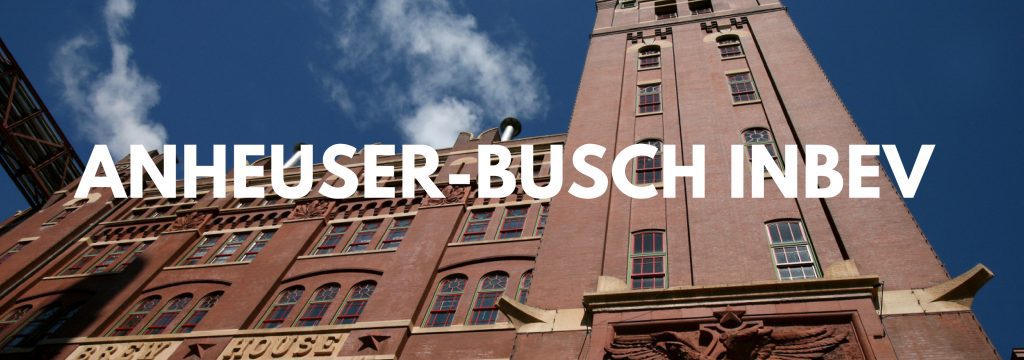
Anheuser-Busch InBev (AB InBev), created ten years ago through the merger of Anheuser-Busch and InBev, is one of top hirers for MBA students in the Boston region. A Belgian-Brazilian beverage and brewing company, AB InBev has offices throughout the world, currently employing around 183,000 people. Given the global nature of their product, the company sponsors MBA and internship opportunities with a focus on global business. Each summer, the company offers a 10-12 week summer internship at their New York office, which often results in getting hired into the company’s Global MBA program—a one year high potential leadership program that prepares participants for quick career growth.
Anheuser-Busch InBev was one of the top hirers for MBA internships at both the Harvard Business School and the Sloan School of Management at MIT, two of the most highly ranked business programs in the world. At MIT Sloan, AB InBev employed nine members of the Class of 2017 as summer interns.
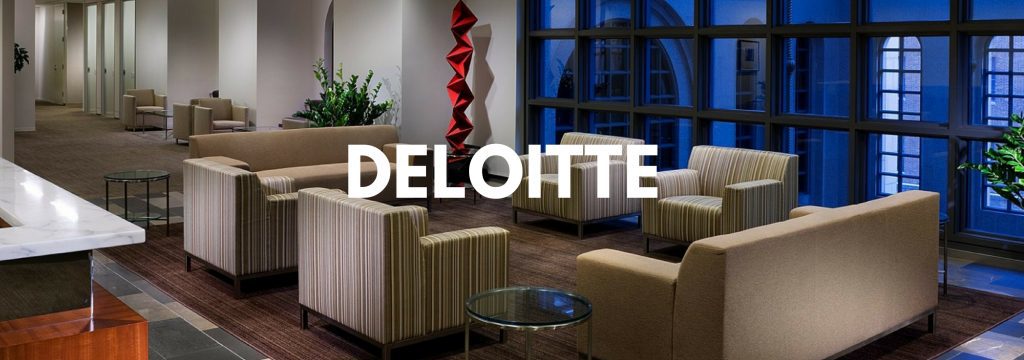
Founded 173 years ago in London, Deloitte remains one of the world’s top professional services networks today, providing tax, consulting, enterprise risk and financial advisory services throughout the world. As of 2016, Deloitte was recognized as the 6th largest privately owned organization in the United States.
With roughly 263,900 employees worldwide, it’s probably no surprise that Deloitte offers plenty of Boston internships. Deloitte Consulting hired six MBA interns from MIT Sloan for the summer of 2017, and also made the lists of top employers for F.W. Olin, Harvard, and Suffolk University’s Sawyer Business School.
The vast number of student interns employed at Deloitte may be a reflection of their vast internship program, which include programs like the Deloitte Consulting Immersion Program, Deloitte Women’s Leadership Launch, and the Advanced Degree Veterans’ Forum.
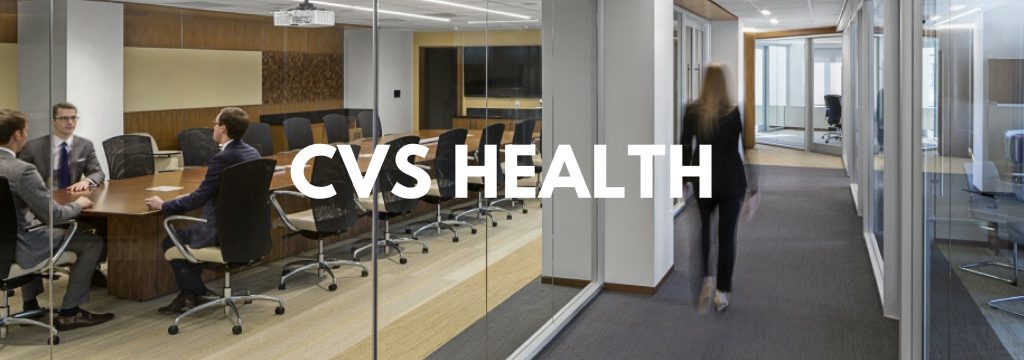
At Boston University’s Questrom School of Business, 108 different companies hired 140 students for internships in 2018. CVS Health, also an employer for MBAs from Harvard Business School and Babson College’s F.W. Olin Graduate School of Business, hired five students from Questrom for summer internships, making it the number one employer for that school.
CVS Health Corporation, headquartered in Woonsocket, Rhode Island, has grown since 1964 into a top Fortune 500 company with more than 246,000 employees and $177 billion in annual revenue. In December 2017, the retail and health care company also made headlines when it acquired health insurance mega-company Aetna for $69 billion.
CVS Health offers a number of MBA internship programs for MBA students, depending on their interest within the field. Among them are the CVS Year-round internship, Spanish Immersion Summer Internship, and Specialty Clinical Innovation Internship. CVS also believes in students growing their careers with the organization, which likely means greater opportunity for an internship to turn into a long term career.
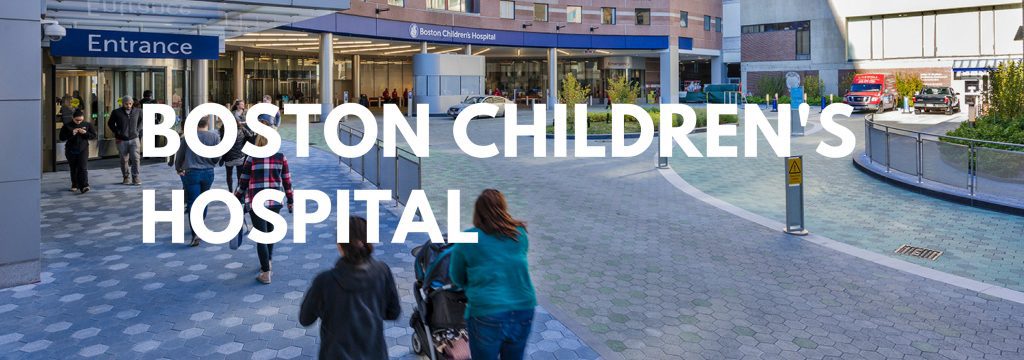
With the growing popularity of jobs within the healthcare administration field, it should come as no surprise that one of the top employers for MBA internships in Boston is the Boston Children’s Hospital. The hospital, founded in 1869, has been ranked by the U.S. News & World Report #1 in eight of ten clinical specialties. For 2018-19, it was named the country’s number one pediatric hospital.
The hospital is affiliated with Harvard Medical School, so it’s likely no surprise that they are a top employer of MBA students as well, learning about the other side of health care. They are also one of the top employers for MBA students at Northeastern’s D’Amore-McKim School of Business, which requires students to pursue a corporate residency for six months of its 24-month full-time MBA program.
